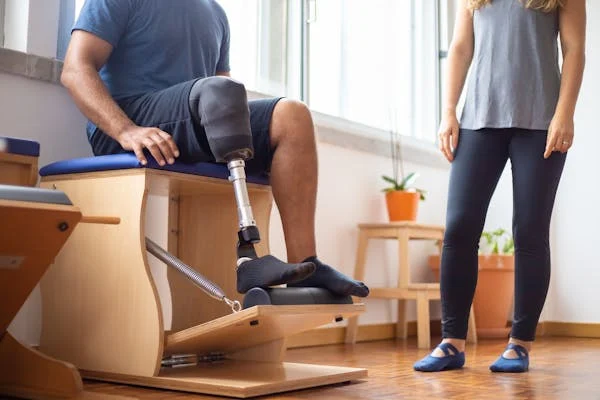A prosthetic is more than just a tool. It becomes part of a person’s everyday life — something they rely on from morning to night. But like any part of the body or any well-used machine, prosthetics need care. And that care starts with regular check-ups.
Too often, people only return to their clinic when something feels wrong. Maybe the socket starts to hurt. Maybe the alignment feels off. Maybe a small crack or sound becomes hard to ignore. But by the time these problems show up, damage has already begun — not just to the device, but to the body.
Regular check-ups are not about fixing problems after they happen. They’re about preventing those problems from happening in the first place. A simple visit every few months can make a prosthetic last longer, feel better, and perform at its best. It can also help the user avoid injury, discomfort, and costly repairs.
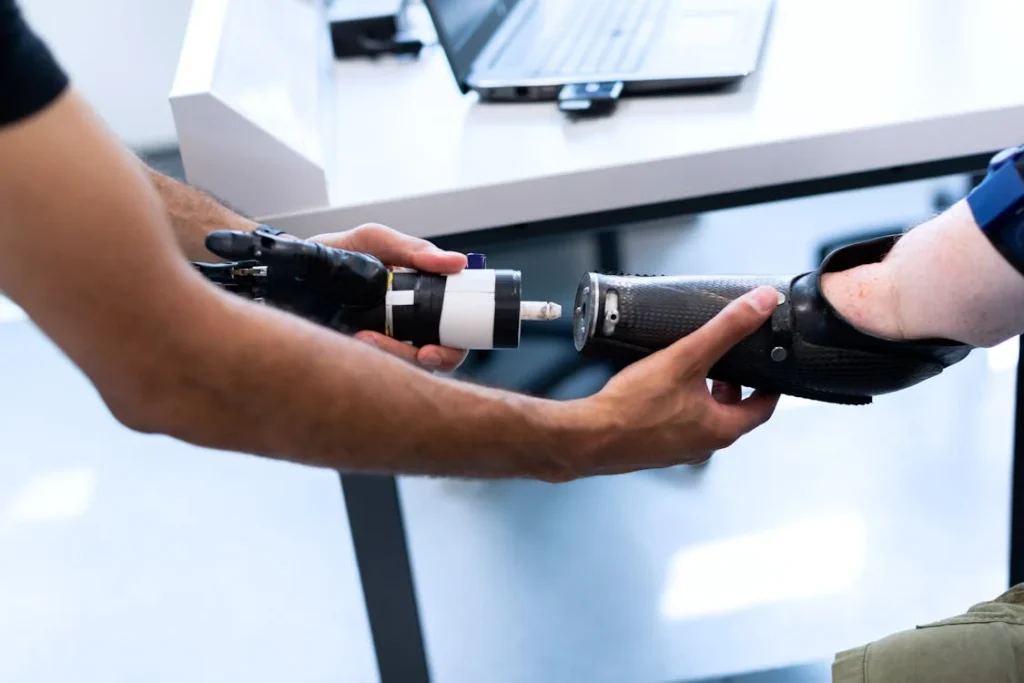
The Changing Body: Why Today’s Perfect Fit Might Not Last
Why Body Changes Affect Prosthetic Fit
Even after healing from surgery or an injury, the human body keeps changing. Muscles grow or shrink. Skin stretches or softens. Weight goes up and down. Daily routines, diet, and physical activity all leave their mark.
And for someone using a prosthetic, even the smallest body change can affect how the device fits.
What once felt snug and secure might start to feel loose, or even tight. The socket might begin to rub in places it didn’t before. Walking may feel uneven.
Movements might seem harder to control. These changes usually happen slowly, over weeks or months. That’s why they’re often missed — until they start to hurt.
But here’s the thing: the prosthetic didn’t suddenly stop working. The body changed. And when the body changes, the prosthetic must adapt too. That’s what regular check-ups are for.
Spotting Subtle Signs Before They Turn Into Big Problems
It’s easy to ignore small discomforts. A bit of pressure here. A little soreness there. But these early signs are often the body’s way of saying the fit isn’t quite right anymore.
If these signs are left unaddressed, they can lead to real problems — like skin breakdown, muscle strain, or even injury from bad posture or poor alignment.
During a check-up, a trained prosthetist knows what to look for. They don’t just ask if you’re in pain. They observe how you stand, walk, and move. They feel the pressure points on the limb.
They listen to how the prosthetic sounds when in use — a click, a creak, a squeak — and they check how each part holds up under daily stress.
Sometimes, all that’s needed is a slight tweak in the alignment. Other times, it might mean adjusting the socket or changing the liner. These changes take little time, but they can make a huge difference in how the prosthetic feels and functions.
Regular check-ups give space for these small, proactive changes — before they become painful, expensive repairs.
Mental Health Effects of Poorly Fitting Prosthetics
It’s not just the body that suffers when a prosthetic fit goes wrong. The emotional toll can be just as serious. If a user starts to feel unstable or experiences pain with each step, they may slowly begin to avoid activities they once enjoyed. A short walk becomes stressful. Getting out of the house feels like a chore. Confidence fades.
This kind of emotional wear-down doesn’t always show up in words. It shows up in behavior. Less movement. More hesitation. Less joy.
The good news is, this is often reversible. When the fit is corrected — when the socket feels secure, the alignment feels smooth, and the prosthetic responds properly — people regain their ease. They stand taller.
They move more freely. And that emotional weight starts to lift.
That’s the hidden power of check-ups: they help restore not just function, but confidence.
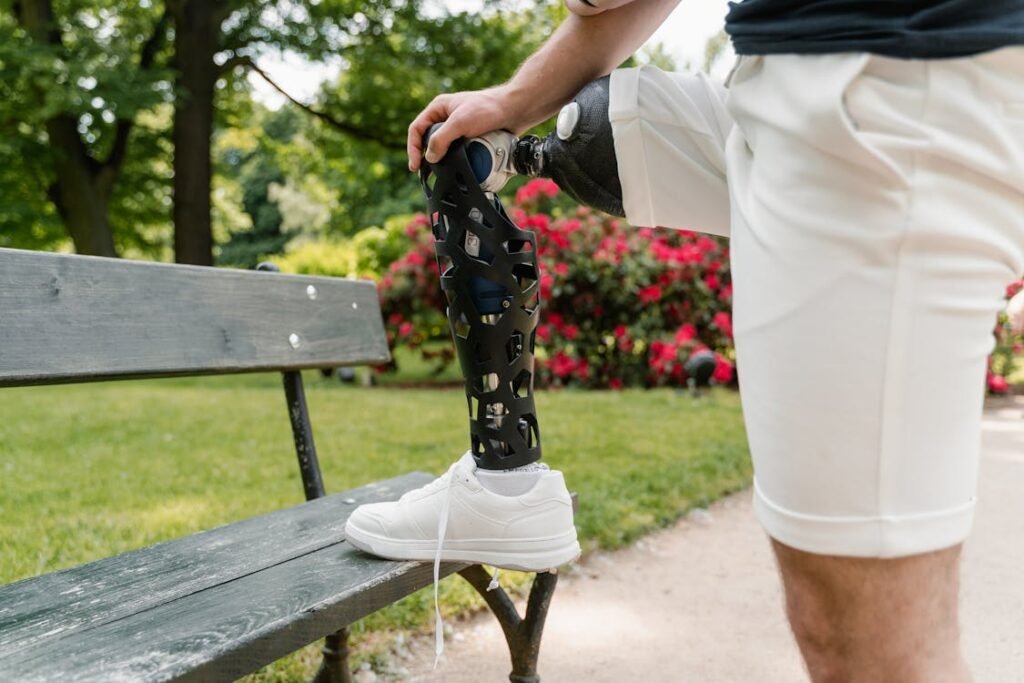
Extending the Life of the Prosthetic Itself
Wear and Tear Happens — Even When You Can’t See It
Prosthetics are built to be strong. At Robobionics, our designs are tested for real-world durability, from joint strength to sweat resistance. But even the strongest materials wear down over time. Constant friction, pressure, and movement will eventually affect the structure — especially in areas that face daily impact.
Most users won’t see the wear right away. The prosthetic might look fine on the outside. But inside, screws may be loosening. Liners may be thinning. Connectors may begin to shift.
These micro-changes often happen long before a part actually breaks. And once a component does fail, it usually causes more damage elsewhere.
That’s why early detection is key. In regular check-ups, each part of the prosthetic is inspected closely. We check for cracks, misalignment, and early signs of strain. We test the tightness of joints and the function of grips or hinges.
We also clean and condition parts that collect dirt, sweat, or moisture — which can quietly eat away at materials if left unchecked.
Think of it like a health check for your device. A small tightening here, a quick swap of a part there — it all helps keep your prosthetic working like new.
How Regular Prosthetic Maintenance Saves You Money
Some people skip check-ups because they’re trying to save money. It makes sense — life is busy, and if things seem fine, why bother?
But skipping maintenance now can lead to much higher costs later. A worn-out liner might cause skin damage that requires medical treatment.
A loose socket could lead to falls or create damage that requires a full replacement. What could’ve been solved with a fifteen-minute adjustment now costs days, and possibly thousands, to fix.
Regular check-ups protect not just the prosthetic, but your wallet. They catch problems when they’re small and cheap to repair. They help the device last longer, stretch the value of every part, and prevent major issues from forming.
Over time, this means fewer replacements, fewer breakdowns, and more time enjoying life — not managing problems.
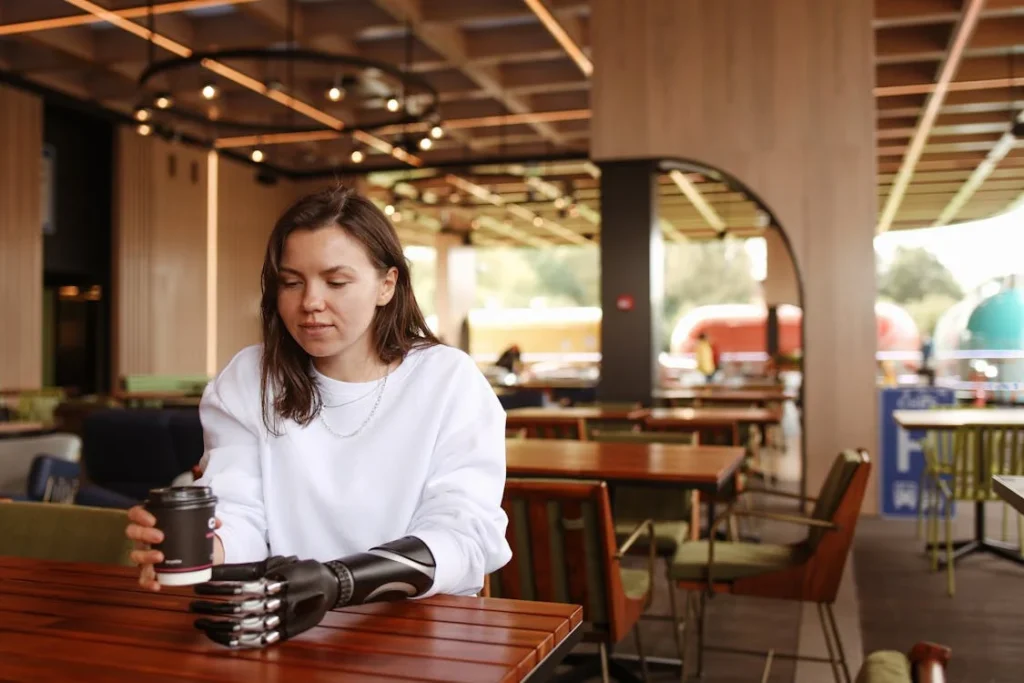
How Life Changes Impact Fit and Function
Your Body Keeps Evolving — So Should Your Prosthetic
Life never stands still. People change jobs. They move to different cities. Their activity levels shift. Some take on more physical tasks, others settle into quieter routines. Health changes too — weight gain or loss, muscle tone, new medications, or chronic conditions can all affect how the body interacts with a prosthetic.
What worked six months ago may not work today — not because something is wrong, but because you’ve changed. And your prosthetic needs to change with you.
We’ve met users who became more active after getting a prosthetic. They started walking more, climbing stairs, even returning to sports. Others shifted into more desk-based routines. In both cases, the socket and device alignment needed updates to match the new lifestyle. A check-up is what made that possible.
Without regular follow-ups, people often adjust themselves to fit the device, rather than the other way around. They change how they walk. They tilt their body. They favor one side. These quiet compensations add stress to muscles and joints — and they often lead to pain in the back, knees, or shoulders.
But it doesn’t have to be that way. With timely care, the prosthetic evolves with the person — not against them.
Growing Children and Changing Needs
For younger users, especially children and teens, the need for check-ups is even more important. Their bodies are still growing. Bones are lengthening. Muscles are stretching. What fits today might feel completely wrong just a few weeks later.
At Robobionics, we’ve worked with many young users who outgrow their sockets quickly. Regular check-ups help us monitor that growth and make timely changes — so the prosthetic stays supportive, not restrictive.
If growth changes go unchecked, the socket may start to pinch or cause pressure on new bony areas. That can lead to skin damage or even affect how the limb itself grows.
Check-ups aren’t just about the prosthetic. They’re about protecting the body — especially while it’s still developing.
Aging and Shifting Body Needs
As people age, muscle tone may decrease. Skin becomes thinner. Healing takes longer. Sometimes, the limb volume changes — not dramatically, but just enough to affect how snug the socket feels.
Elderly users might also experience balance changes or reduced energy, which means the prosthetic needs to offer even more support and comfort. What used to feel fine during long walks may suddenly feel tiring. Or the limb might begin to shrink slightly due to lower physical activity.
During regular check-ups, we often notice these subtle signs before the user does. A slight adjustment to the padding, a new liner, or even switching to a lighter component can bring back ease and stability — allowing older users to continue their routines without feeling held back.
This proactive approach also helps prevent falls and injuries, which are more dangerous as people get older.
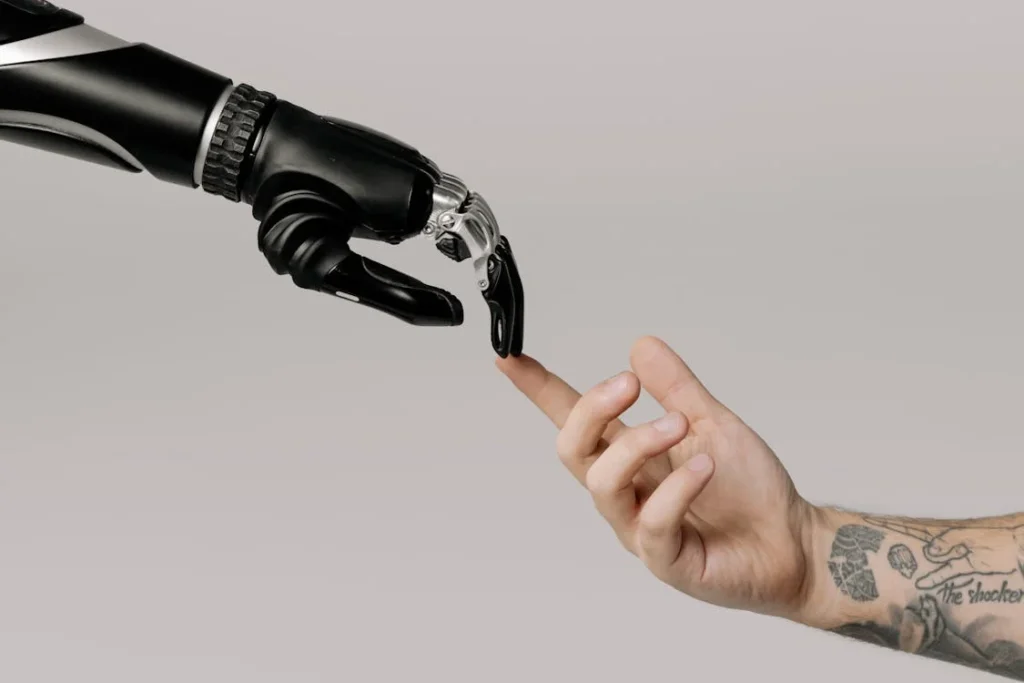
Staying Ahead of Technology: Upgrades and Improvements
Prosthetics Are Getting Smarter — Are You Keeping Up?
Technology moves fast. At Robobionics, we’re constantly researching better materials, smarter sensors, more responsive controls, and lighter components. What was cutting-edge two years ago might now be standard. But users can only benefit from those improvements if they stay connected to their care team.
Regular check-ups give you a chance to explore upgrades. Maybe a better liner has been developed that fits your activity level. Maybe there’s a new wrist module that improves grip strength. Maybe your socket can now be 3D printed for a closer fit in less time.
These aren’t just extras — they can make daily life easier, smoother, and even more enjoyable.
Check-ups open the door to those conversations. You can talk with your prosthetist about what’s new, what’s available, and what fits your current goals.
Small Additions, Big Impact
Sometimes, it’s not a full upgrade that makes the difference. It’s something small — a gel pad for more cushioning, a different type of socket liner, a slight curve in the foot plate. These might seem like small tweaks, but they can completely change how the prosthetic feels and performs.
One user we worked with struggled with socket pressure while walking uphill. A minor realignment during a check-up solved the issue.
Another had trouble wearing the device all day because of sweat build-up. We changed the liner material, and suddenly, the problem was gone.
These kinds of changes only happen when users stay in touch. When they come in regularly. When they feel safe saying, “Something feels a little off.”
That’s the beauty of consistent care — it allows for small, timely changes that bring major relief.
The Relationship That Makes It All Work
A prosthetic is not a one-time fit-and-forget device. It’s part of an ongoing relationship — between user and provider, between body and device. The better the communication, the better the experience.
Check-ups build trust. They allow the prosthetist to truly understand how the user lives, what challenges they face, and how their needs evolve.
Over time, this creates a rhythm of care. Adjustments become smoother. Upgrades become more relevant. And users feel more in control of their own recovery and growth.
This relationship is at the heart of everything we do. It’s not just about fixing issues. It’s about building a system where problems are less likely to happen at all.

Confidence and Comfort: The Psychological Side of Regular Check-Ups
A Check-Up Is Reassurance, Not Just Repair
Living with a prosthetic often means living with questions. Is this how it’s supposed to feel? Should it make that sound? Why does it feel different today than yesterday? These thoughts can create doubt, even if the device is working well enough.
Regular check-ups give people the space to ask these questions. They allow users to express what they’ve been feeling, without having to wait until something breaks.
Just having a professional confirm that everything is working as it should offers a sense of peace. It tells the user, you’re doing fine, and your device is doing fine too.
That reassurance matters. It eases the mind. It stops small concerns from becoming big worries. And it gives users a feeling of control — the confidence that they’re not just reacting to problems, but staying ahead of them.
Over time, this mindset builds emotional strength. A person who feels in control of their prosthetic care also feels more in control of their life.
Feeling Seen, Heard, and Understood
A prosthetic is deeply personal. It’s not just a piece of equipment — it’s something that touches your body, affects your movement, and is with you every day. That’s why care shouldn’t feel distant or mechanical.
Regular check-ups create connection. They allow users to form a relationship with their prosthetist. They feel heard when they say, “It feels different when I go uphill,” or “It presses here when I sit.” These might seem like small comments, but they reveal important insights that can guide adjustments and improve comfort.
When someone feels truly listened to, it builds trust — not just in the clinic, but in the device itself. That trust leads to more consistent use, better posture, and fewer hesitations in daily movement.
In our experience at Robobionics, this relationship is where long-term success begins. It turns passive users into active participants in their own care.
Reducing Isolation Through Consistent Support
Limb loss can be isolating. Even with support from family and friends, it’s common for users to feel like others don’t quite understand what they’re going through. The everyday challenges. The emotional swings. The physical fatigue.
Regular check-ups break that isolation. They provide consistent interaction with someone who not only understands the technical side of prosthetic care, but also the emotional side. Someone who knows what it’s like to feel off balance, to be sore after a long day, to wonder if a small pain is the start of something bigger.
This kind of ongoing support is hard to measure — but it’s easy to feel. When a person knows they have someone to turn to, someone who checks in regularly, they feel less alone. That emotional support often shows up in subtle but powerful ways: more willingness to stay active, more openness to trying new tasks, more energy in daily life.
And all of that starts with a routine visit that feels more like care and less like a chore.
Rebuilding Identity Through Care
Many people who use prosthetics are rebuilding their identity — physically, emotionally, socially. They’re learning how to move again, how to express themselves again, how to feel whole in a new way. It’s a journey that takes time.
Regular check-ups become part of that journey. Not as interruptions, but as milestones. Each visit becomes a point of reflection — what’s better since last time? What’s still tough? What’s the next goal?
This rhythm helps users feel like they’re progressing, not just maintaining. And when they leave the clinic feeling better than they did when they came in — even by a little — it reinforces that they are not just surviving with a prosthetic. They’re growing with it.
That emotional growth is often the most important part of long-term recovery. And it’s built, little by little, through care that is consistent, thoughtful, and human.
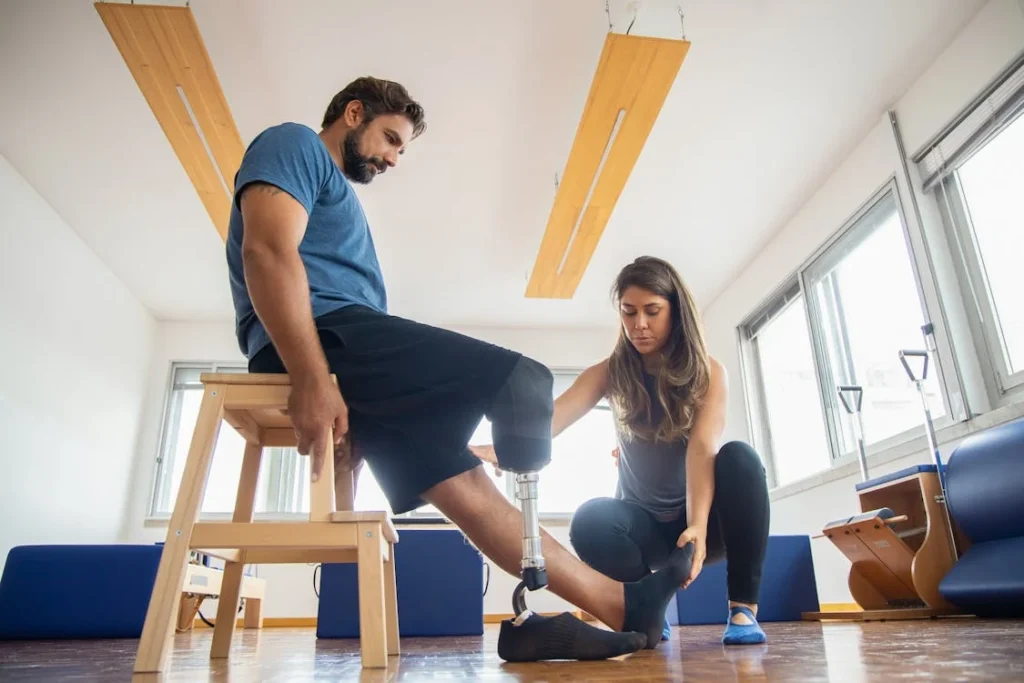
Supporting the Support System: The Impact on Caregivers and Families
Caregivers Also Need Confidence
When someone uses a prosthetic, their family or caregiver often becomes part of the day-to-day process. They help with putting on the device, noticing changes in movement, managing appointments, and sometimes providing emotional encouragement.
But caregivers don’t always get clear guidance. They may not be sure if something is normal, or if they should be worried.
Regular check-ups provide structure not just for the user, but also for the caregiver. These visits give them a chance to speak up, ask questions, and get reassurance about what they’re seeing at home. They no longer have to guess or rely on trial and error.
This improves the caregiver’s own confidence. They know how to support more effectively. They feel less stress about what might go wrong. And that calmness, in turn, helps the prosthetic user feel safer and more at ease.
Care works best when everyone involved feels informed. Check-ups help make that happen.
Reducing the Emotional Load at Home
Without regular follow-up care, small problems with a prosthetic can quickly become bigger sources of tension. A user might grow frustrated because something feels off.
A caregiver might notice the change but not know what to do. This can lead to arguments, miscommunication, or emotional distance — not because of a lack of love, but because of stress.
Check-ups relieve that pressure. When issues are addressed early and openly, they don’t get the chance to disrupt home life. Both the user and caregiver feel like they’re working with a team, not against a problem on their own. This creates a more peaceful environment, where support is shared and solutions feel within reach.
It also allows families to focus more on the joys of daily life — routines, conversations, and connection — and less on managing discomfort or limitations.
Building a Sense of Shared Progress
Every time a user has a check-up and walks away feeling better, the caregiver benefits too. They see improvement. They see less strain in movements. They watch their loved one gain back freedom.
These changes are meaningful. They provide encouragement and motivation to continue supporting the journey.
In some cases, caregivers attend appointments with the user. At Robobionics, we welcome and encourage this. When caregivers understand how a device works — and how small changes in fit can affect comfort and balance — they can offer better help back at home.
They also become better advocates. If something starts to shift between visits, they’re more likely to catch it and raise it early.
Check-ups turn the recovery process into a shared experience — one where the user and their support system grow together.
Giving Everyone Peace of Mind
Perhaps the most valuable thing a regular check-up offers is peace of mind — not just for the user, but for those who care about them. Knowing that the prosthetic is working well, that issues are being monitored, and that professional support is available brings comfort.
This peace of mind goes a long way in improving emotional health, especially for families who have already been through the stress of surgery, rehab, or limb loss. It allows life to return to something more normal. Less fear. More trust.
When care is consistent, everyone rests easier.
Conclusion
A well-fitted prosthetic does more than restore movement — it restores confidence, comfort, and quality of life. But no device stays perfect forever. Bodies change. Life shifts. And even the strongest prosthetics need care.
Regular check-ups are not just about fixing problems. They’re about preventing them. They protect your body, extend the life of your device, and keep your mind at ease. They help you stay ahead of discomfort, avoid injury, and make sure your prosthetic continues to support your goals — whether that’s walking, working, or simply living freely.
At Robobionics, we believe that consistent, personalized care is what transforms good outcomes into great ones. A short visit every few months can save you from pain, stress, and costly repairs down the road.
Your prosthetic works hard for you. Let’s make sure it keeps working its best — today, and for years to come.



